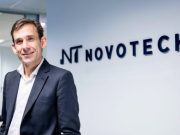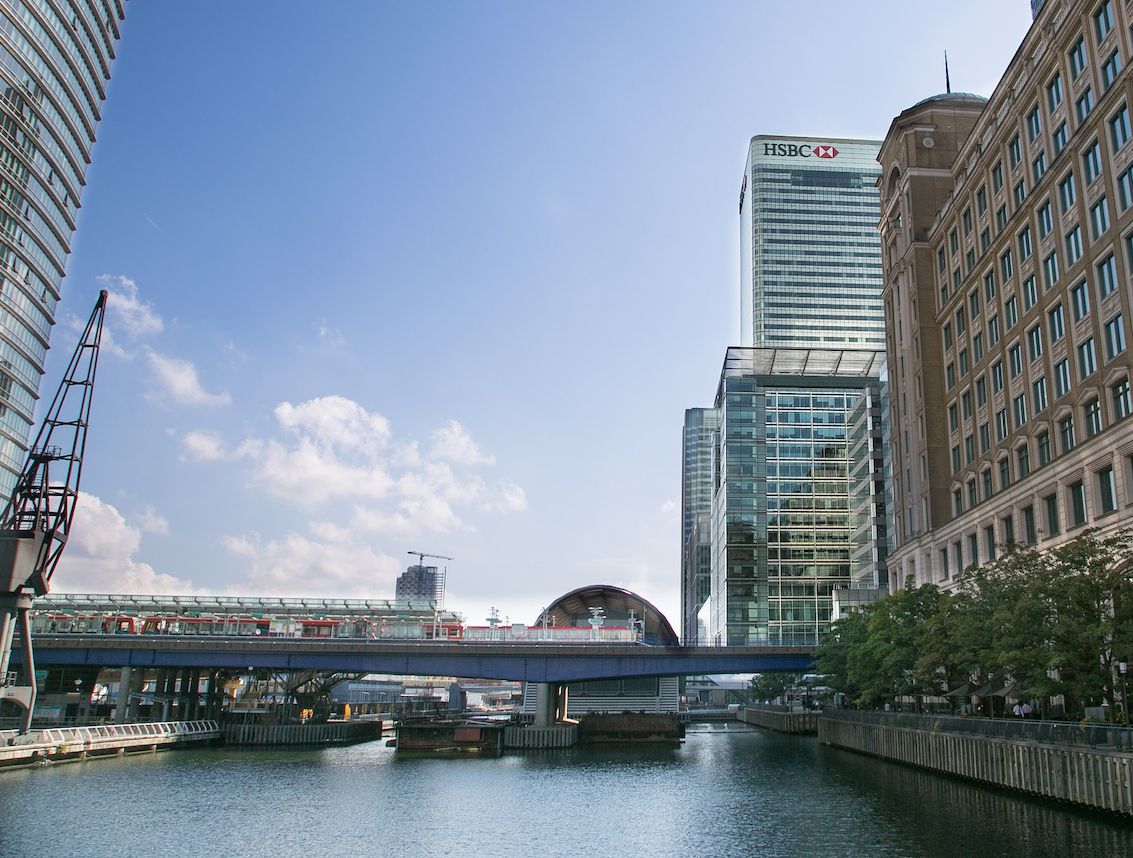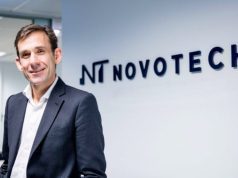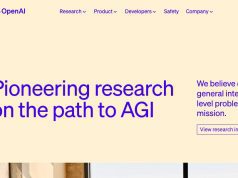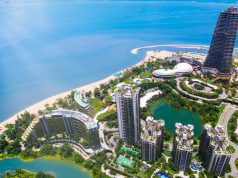HSBC Statement to Shareholders on Ping An Asset Mgmt Call to Split HSBC: Reconfiguration of HSBC APAC Will Result in Material Loss of Value for HSBC Shareholders, AGM on 5th May 2023, HSBC Market Value at $141 Billion, Citigroup $98 Billion, JP Morgan $414 Billion
20th April 2023 | Hong Kong
HSBC has issued a statement to shareholders on Ping An Asset Management call to split HSBC, citing key reasons including a reconfiguration of HSBC Asia-Pacific will result in material loss of value for HSBC shareholders. Ping An Asset Management Chairman & CEO Michael Huang: “HSBC Asia has been subsidizing the Group’s relatively low return non-Asia businesses.” HSBC Annual General Meeting (AGM) is on the 5th of May 2023. HSBC current market value (20/4/23) is at $141 billion, Citigroup at $98 billion, and JP Morgan at $414 billion. See below for HSBC full statement, Ping An Asset Management full statement.
“ Reconfiguration of HSBC APAC Will Result in Material Loss of Value for HSBC Shareholders, AGM on 5th May 2023, HSBC Market Value at $141 Billion, Citigroup $98 Billion, JP Morgan $414 Billion “
HSBC Statement to Shareholders on Ping An Asset Mgmt

19th April 2023 – The Board of HSBC notes the statement issued by Ping An Asset Management Company on 18 April 2023. HSBC is publishing this statement to all shareholders and all parties with an interest in HSBC to address the matters raised in the statement.
Strong and enduring commitment to delivering sustainable shareholder value.
HSBC welcomes dialogue with all shareholders with a view to driving sustainable long-term value. HSBC has had extensive and senior-level engagement with Ping An in 2022 and 2023, comprising approximately twenty meetings at Chairman, CEO, CFO and senior management level.
The Board of HSBC has assessed structural options for HSBC Asia Pacific with an open mind and with the benefit of robust third-party financial, legal and accounting analysis and advice. It has considered in detail both the potential advantages and disadvantages, and has discussed its conclusions extensively with Ping An through both multiple meetings and written correspondence. HSBC has also engaged widely with other shareholders to obtain their input and perspectives. In various conversations between Ping An and HSBC, it was noted that both parties agreed to disagree on a number of issues.
HSBC’s existing strategy is working and is delivering improving returns and dividends.
HSBC set out its strategy in detail in 2020. This strategy is based on transforming its business and service to its customers to create a strengthened platform for enhanced growth and returns on a sustainable basis, across the interest rate cycle.
HSBC has taken actions to grow non-interest revenues, increase capital allocation to Asia Pacific, exit non-core businesses in the West, reduce risk-weighted assets ahead of target, and reduce costs despite inflation and significant investment in technology. This strategy is working and is delivering improving returns. This is reflected in our 2022 financial results with a 17% increase in adjusted profits, an adjusted ROTE of 11.6%, and an expected ROTE of at least 12% from 2023 onwards, all on a strong capital base.
HSBC is committed to ensuring that shareholders share the benefits of improved performance. As announced in August 2022, HSBC has established a dividend pay-out ratio of 50% for 2023 and 2024, and is confident that it will return the dividend per share to pre-COVID levels. Further, HSBC will consider a special dividend of US$0.21 per share to be paid in 2024, subject to completion of the disposal of HSBC Canada. HSBC also expects to have substantial distribution capacity for dividends and buybacks in the years ahead.
A structural reconfiguration of HSBC Asia Pacific would result in material loss of value for HSBC shareholders.
In 2022, HSBC undertook a thorough evaluation of structural options for its Asia Pacific businesses, the conclusions of which were summarised in our 2022 interim results. The Board considered the potential revenue and value benefits from these structures, including capital allocation and business choices, potentially obtaining new licences and potentially increasing risk appetite. However, these benefits were meaningfully outweighed by expected value decline in multiple areas, as well as a diminution of service to long-standing HSBC customers. The Board therefore concluded that these structural options would result in material loss of value for shareholders and lower dividends.
Since this evaluation was completed, Ping An has proposed a minority listing of HSBC’s Asia Pacific businesses or a consolidation of HSBC’s Asia Pacific businesses under a single listing. The Board assessed these proposals during Q1 2023 and concluded that they would also result in a diminution of service to our long-standing HSBC customers, a material loss of value for shareholders, and lower dividends.
Amongst other factors, the Board would highlight the following:
Separation is not consistent with HSBC’s business model: HSBC is not a portfolio of discrete domestic banks. It is an integrated bank. Structural steps that create separation within HSBC’s integrated model would result in meaningful costs and risks and would damage a core commercial proposition – global interconnectivity – that is a key driver of revenues. Ping An, in its 18 April statement, acknowledges the importance of HSBC’s global business lines and its international connectivity, and therefore now recommends a partial listing of HSBC Asia Pacific.
The idea of a partial listing of HSBC Asia Pacific appears to be based on Ping An’s belief that it will not negatively impact the international model of HSBC, whilst creating incremental value for shareholders. Our analysis does not reach the same conclusion. Our work identifies negative impacts of Ping An’s proposed financial engineering approach on revenues, capital, liquidity and costs that would outweigh any perceived valuation arbitrage that may exist from a partial Hong Kong listing. A partial listing would also erode client confidence in the long-term sustainability of HSBC’s international customer proposition. Corporate finance structural alternatives are normally used to unlock value in situations where the businesses within a group have limited interconnectivity. HSBC is not a holding company of disconnected domestic banks: we are the world’s most interconnected international bank.
Meaningful revenue dis-synergies: HSBC’s current model manages returns from clients globally. Under a standalone listing, HSBC’s Asia Pacific and ex-Asia businesses would be driven to assess client economics with reference to their own geographies only, particularly under stressed macroeconomic conditions. This would result in reduced revenues and returns. In addition, the customer experience and service for international customers would be negatively impacted by significant incremental administrative burden, less coordinated customer service, and decision-making governed by arm’s length contracts.
Material one-off and ongoing running costs: A restructuring would incur a number of one-off and recurring costs that are material in aggregate. A number of these would be required to meet relevant regulatory and other requirements for banks. These costs would include IT systems and applications, standalone funding, standalone processes and governance, and tax leakage. HSBC Asia Pacific would also likely need increased capital, based on Hong Kong peers.
Significant complexity and execution risks: Any separation would be subject to regulatory approvals in c.25 jurisdictions, require shareholder approval, and oblige us to alter our customer service around the world. It would also create a multi-year period of uncertainty when clients and employees in particular would be distracted and impacted.
Structural reforms of HSBC’s Asia Pacific businesses suggested by Ping An would significantly dilute the international business model upon which HSBC’s strategy is based. This would result in a material erosion of earnings, returns, dividends and shareholder value, and a disruption to our unique global customer service proposition. Accordingly, HSBC cannot support or recommend to its shareholders the structural options that have been proposed or otherwise considered.
The Board and management team are fully focused on continuing to deliver shareholder value. They are working to transform the efficiency and agility of the organisation, and to deliver attractive dividends and levels of capital return. The Board strongly believes that HSBC should focus on executing the current strategy that is delivering, and which the Board is confident is the best and safest way to continue to deliver substantially more value for shareholders over the coming years. Accordingly, the Board of HSBC recommends that shareholders vote against resolutions 17 and 18 as set out in the 2023 AGM Notice of Meeting available on the HSBC website.
HSBC is a global systemically important bank. It is not in the interests of its shareholders, customers or stakeholders for HSBC’s structure to remain the subject of prolonged debate. The Board believes there is broad and consistent support from the vast majority of shareholders for HSBC’s current strategy, and for maintaining the Bank’s integrated group structure.
The AGM on 5 May 2023 presents the opportunity for shareholders to debate this issue, and for all shareholders to vote on resolutions 17 and 18 and bring this issue to a conclusion. Thereafter the Board, management and shareholders can be aligned and fully focussed on continuing to address our customers’ needs across the globe and deliver sustainable shareholder value.
Ping An Asset Management Company statement on HSBC Group Plc
18 April 2023
I – Statement purpose
In light of significant and at times misleading market speculation and reports regarding Ping An’s relations with and views about HSBC Holdings plc (HSBC or HSBC Group), Ping An Asset Management Company (PAAMC) wishes to publicly clarify its ownership stance on HSBC.
II – HSBC performance
PAAMC has been a long-term investor in HSBC having initiated the position in 2015. Despite initial optimism, PAAMC grew increasingly concerned about HSBC’s deteriorating operating performance, marked underperformance against a credible peer group, damaging dividend policy adjustments, market value decline and tepid response to global business model challenges.
Consequently, since 2020 we have strengthened our engagement with HSBC, participating in communications through various channels and we have presented a raft of detailed considered suggestions designed to help HSBC enhance its value, mitigate risks and increase its focus on more Asia development opportunities.
After years of persistent effort, PAAMC is heartened to see HSBC’s most recent results improving and its management embracing a number of our suggestions since we intensified our communication, such as:
- Exited some business lines: Announced exits of some ex-Asia business lines that were underperforming and/or lacked synergies, such as US retail and Canada. However, the frictional challenges of exiting problematic ex-Asia businesses, recently exemplified by French retail disposal issues, underscores why a more radical broader structural solution to unburden HSBC’s Asia business is needed which has greater execution feasibility.
- Improved its peer benchmarking system: Changed its peer group benchmarking to increase the number of Asian banks in its benchmarking peer group from one to four, so as to more accurately reflect HSBC’s mix of business.
- Implemented reform of executive remuneration: Implemented the reform of executive remuneration standards to include “Asia RoTE (return on average tangible equity)” to HSBC’s latest annual KPIs for executives and link it to executive remuneration.
- Promoted the reform of its long term incentive plan: Raised management’s long-term incentive plan RoTE target range from 8%-11% to a more demanding 13%-15.5%.
- Committed to resume quarterly dividends: Committed to resuming quarterly dividend payments from the first quarter of 2023 and plans to pay a special dividend in 2024.
However, despite improving financial performance improvements in 2022, we remain deeply concerned about HSBC on five fronts.
Firstly, HSBC’s absolute performance improvement has been driven mostly by interest rate rises which are now likely to peak. HSBC’s reported 4% rise in Operating Revenue in 2022 was purely driven by interest rate linked net interest margin (NIM) expansion, which drove a 23% rise in net interest income (NII) despite average interest earning assets falling 0.3% YoY. In fact, non-interest income fell 17% in 2022.
Secondly, HSBC Group and HSBC Asia performance continues to significantly underperform peers despite absolute performance improving. In 2022, HSBC Group underperformed global peers on key performance metrics having reported a RoTE of 9.9% (vs. 12.5% global peer average), Cost Income Ratio (CIR) of 64.4% (vs. 55.2% global peer average) and revenue growth of 4.4% (vs. 9.2% global peer average). The underperformance gap was even starker for HSBC’s Asia operations which in 2022 only delivered a RoTE of 10.5% (vs. 13.8% Asia peer average). HSBC’s relatively poor performance in Asia was hurt by a high CIR (54% vs. 38% Asia peer average) and a low NIM that was dragged down by the bank’s relatively high exposure to lower yielding interbank assets (14% vs. 7% average for Asia peers).
Thirdly, HSBC management’s RoTE and cost targets are not sufficient. HSBC management is only targeting >12% RoTE for 2023 onwards which is the level already surpassed by its selected peer group two financial reporting years earlier in 2021 (12.8% average) when the interest rate environment was less favorable. Furthermore, HSBC’s ambition to grow adjusted costs at c.3% in FY23 from $30.5bn does not seem sufficient given the Group’s relatively high CIR at both at HSBC Group and HSBC Asia level that has been compounded seemingly by high group head office expenses (3% of revenue vs 1% peer average in 2021, as no 2022 number disclosed by HSBC) and excessive headcount (HSBC currently has 219,199 full-time equivalent staff or FTEs versus the original 2022 FTE target of 200,000 which was dropped by management). In addition, the management has not addressed the apparent lack of scale – and thus structurally high costs – in some of the sub-scale/ peripheral market positions (for example, CIR was 88% in Singapore[i], 68% in Mainland China, 84% in US, and 113% in Europe non-ring fenced bank).
Fourthly, HSBC management has failed to fundamentally address key business model challenges. These challenges include weak localization, excessive cost base, capital inefficiencies, and elevated geopolitical tensions.
Fifthly, HSBC Group has drained HSBC Asia of dividends and growth capital to support its relatively low return non-Asia businesses. Over the past three years, HSBC Asia has upstreamed 61% of its cumulative profits to HSBC Group. The US$16bn worth of dividends upstreamed by HSBC Asia to HSBC Group over the past 3 years is more than 1.1x the total dividends that HSBC Group paid out to shareholders over that period. In effect, HSBC Asia has been subsidizing the Group’s relatively low return non-Asia businesses, which have taken up over half of the Group’s overall Risk-Weighted Assets (RWA) over the last three years, but contributed only 14% of profits. While HSBC has exited some non-core operations, these exited businesses are very small (only 4.7% of RWA), hence the Group still has 51% of RWA outside of Asia which generates only a quarter of the returns that the Asia business does (pre-tax return on RWA for ex-Asia 0.9% vs 3.4% Asia).
III – Strategic restructuring options
It is necessary for HSBC to push for structural reform to fundamentally address HSBC’s underlying market competitiveness issues, improve performance, enhance value and accelerate growth opportunities in Asia.
In recent years, numerous shareholders have repeatedly suggested that HSBC management should spin off HSBC’s Asian business into a separately listed entity that is Hong Kong headquartered. We believe that such a proposal which grants the Asia business more autonomy merits serious consideration following years of underperformance and underinvestment. Over the past 2 years, PAAMC has also shared numerous structural suggestions with HSBC management ranging from listing the HSBC Asia business in Hong Kong to consolidating Asia businesses.
After careful study of the spin-off solution proposed by numerous shareholders, and listening carefully to feedback and opinions from HSBC and market professionals, we suggest that the original spin-off solution be adjusted to a strategic restructuring solution, which can fully address HSBC’s concerns, including but not limited to global value destruction, surging operating costs and legal barriers.
Each solution suggested by PAAMC adheres to two principles: Firstly, HSBC Group would still remain the controlling shareholder of a separately listed Asia headquartered Bank in order to preserve global business line synergies. Secondly, each structural solution would deliver material benefits to the Group’s shareholders including valuation unlock, capital relief, long-term efficiency gains, geo-political risk mitigation and competitive repositioning.
Despite sharing multiple suggestions with HSBC, we have been extremely disappointed by HSBC management’s consistent closed-minded attitude to all solutions. We believe that both the HSBC team and its appointed paid external advisors have an adamantly preconceived view against reviewing any structural options, despite our continued request for an open dialogue and the demands of other shareholders.
Indeed, HSBC has refused to verbally engage in discussions on the proposals, and only simply shared with us their review conclusions. HSBC management simply defaults to statements “that this proposal is materially value destructive” followed by a laundry list of reasons why they cannot entertain such a proposal with little to no acknowledgement of any benefits.
While we recognize that a structural solution will entail some initial incremental costs, we believe these should be open mindedly weighed against the benefits. This prejudice was highlighted in the HSBC 2022 interim results presentation where management listed 14 reasons[ii] why a break up would destroy material value. Not only did management refuse to countenance any benefits but also, in our view, exaggerated many of the costs and risks, for example:
- “Future trading arrangements between HSBC Asia and Group unlikely to mitigate revenue loss”. By remaining as the major controlling shareholder in any partially spun-off entity, HSBC Group would have great influence to make sure that commercial arrangements needed to secure global business line synergies work effectively. HSBC Asia may continue using current business systems under service agreements with HSBC just as it has successfully done with Hang Seng Bank for years. Operational improvements from an Asia spin-off should offset additional costs from independent corporate functions.
- “Build c.US$40bn MREL (Minimum Requirement for own funds and Eligible Liabilities) stack; based on stand-alone application of rules to HSBC Asia. Refinance costs in single-digit billions”. We consider single-digit US$ billions refinancing costs to be extreme. Our understanding is that HSBC has ~US$40 billion of MREL maturing over the next 2-3 years, hence the MREL refinancing costs could be greatly reduced or even avoided if the Hong Kong Monetary Authority were to allow HSBC Asia a transitional/ grace period.
- “Build new, full service IT system in standalone options”. There a number of issues with this claim. Firstly, there is no explicit HK listing rule saying all IT systems need to be independent for an applicant to be qualified for listing in HK (Hong Kong Exchange Guidance Letter 68-13). Secondly, we believe HSBC Asia can continue using the core banking system of HSBC to avoid significant IT costs. There are major precedents for this. For example, Bank of China (HK) is still using its parent company’s IT system and benefits from its global network. Hang Seng Bank (which is also 62% owned by HSBC) also benefits from HSBC’s IT system, ATM network, data processing, etc., even though it is separately listed on Hong Kong Exchange.
- “Loss of Group purchasing power”. It is hard to imagine a significant loss of group purchasing power. For a financial institution, mainly General and Administration (G&A) expenses will be impacted by purchasing power. HSBC Group had G&A expenses of US$11bn (33% of total operating expenses in 2022). Excluding $6.9bn G&A expense from HSBC Asia, HSBC would still have similar purchasing power with >$4bn annual G&A expenses. HSBC Asia can continue to maintain links for economies of scale e.g. in purchasing, and to get operational and technological support from the Group by signing SLAs as needed.
- “Other one-off execution costs (e.g. programme costs, external advisers)”. It is also hard to be convinced that such costs are prohibitive given that HSBC Asia is already a separate legal entity and domiciled in HK/Asia, so no material re-domiciling cost would be incurred. The annual maintenance cost of being a public company is limited.
Challenges aside, we believe that a structural solution which creates a separately listed Asia business headquartered in Hong Kong will crystallize multiple benefits to all HSBC Group shareholders. This would include material value creation driven by a multiple re-rating of an Asia focused business, RoTE accretion, cost synergy benefits (where proposed structure involves in-market business combination), and capital relief benefits.
A structural solution would also deliver a refocused Asian organization that is more streamlined, nimble, localized and has stronger competitive positioning to benefit from Greater Bay Area development and the Chinese yuan internationalization. The HK-listed business would be able to focus on investing resources in Asia and being more attuned to local Asia market dynamics. We also believe a separately listed Asia business would provide greater dividend protection for HSBC Asia shareholders from challenges in the Group’s ex-Asia operations.
We believe the new HSBC Asia, after strategic restructuring, will rapidly become one of the most profitable businesses with a dedicated Asia focused management team capable of generating stronger shareholder returns. It will be the most valuable and unique bank in Asia with the strongest growth potential within the HSBC system, and also the only local bank with global competitiveness.
V – The Hong Kong Retail Shareholder Resolutions
PAAMC has taken note of HSBC’s AGM Resolutions 17 & 18 that were requisitioned by Mr. Lui Yu Kin and the group of shareholders he represents. After careful study we believe the resolutions, which requires HSBC to commit to restore dividends to pre-Covid levels and push management to consider structural reforms on a periodical basis, have their merits. As such we support in principle resolutions 17 & 18 and hope HSBC can be open to and study shareholders’ suggestions.
VI – About Ping An Asset Management Co., Ltd. (“PAAMC”)
PAAMC is a top-ranked asset management institution in China and has been ranked among the top in Asia. Its investment returns have led the industry in recent years, with an entrusted AUM of RMB4.24 trillion (approximately USD582.2 billion), of which approximately 80% of the assets are entrusted by various insurance companies who are members of the Ping An Insurance (Group) Company of China Ltd. and 20% by third parties.
PAAMC has a fiduciary duty towards its clients whose funds are invested in HSBC. As such, we will continue to undertake constructive shareholder engagement with a focus on securing sustainable long term value for our clients.
Mr. Michael Huang
Chairman & CEO PAAMC
Sign Up / Register
Caproasia Users
- Manage $20 million to $3 billion of assets
- Invest $3 million to $300 million
- Advise institutions, billionaires, UHNWs & HNWs
Caproasia Platforms | 11,000 Investors & Advisors
- Caproasia.com
- Caproasia Access
- Caproasia Events
- The Financial Centre | Find Services
- Membership
- Family Office Circle
- Professional Investor Circle
- Investor Relations Network
Monthly Roundtable & Networking
Family Office Programs
The 2025 Investment Day
- March - Hong Kong
- March - Singapore
- July - Hong Kong
- July - Singapore
- Sept- Hong Kong
- Sept - Singapore
- Oct- Hong Kong
- Nov - Singapore
- Visit: The Investment Day | Register: Click here
Caproasia Summits
- The Institutional Investor Summit
- The Investment / Alternatives Summit
- The Private Wealth Summit
- The Family Office Summit
- The CEO & Entrepreneur Summit
- The Capital Markets Summit
- The ESG / Sustainable Investment Summit



